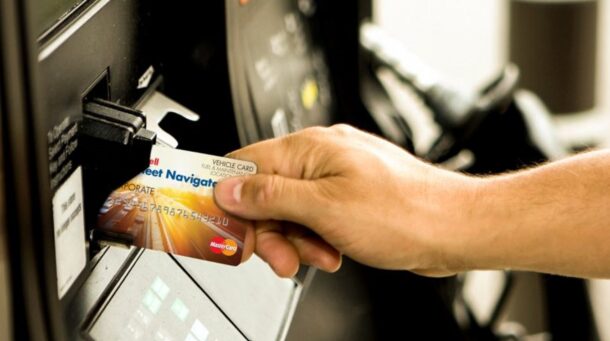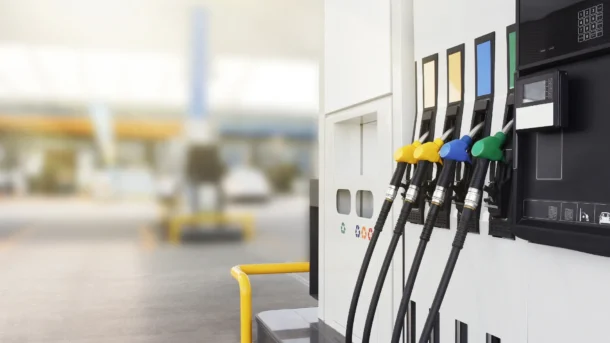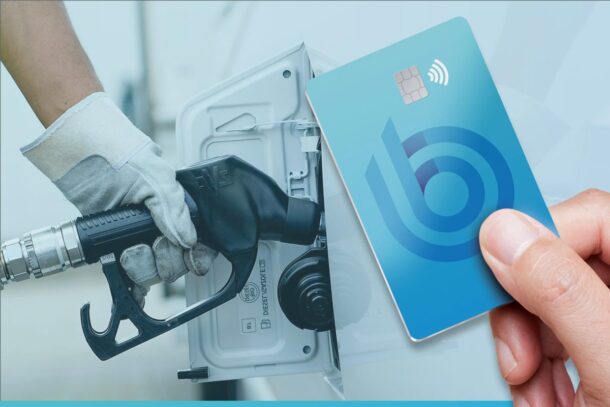Using a fuel card offers several benefits for businesses and fleet management. These include better spending controls, automated expense reporting, real-time fuel tracking, and performance monitoring.
Fleet fuel cards provide increased protection against misuse, streamline administrative tasks, and offer insights into fuel usage and efficiency. Implementing fuel cards can lead to long-term savings and more efficient fleet management.
Saving Costs with Fuel Cards

Source: worldfinancialreview.com
Fuel cards offer numerous benefits that can effectively help businesses save on their fuel expenses. One of the primary advantages is the potential for discounted fuel prices. Many fuel card programs have partnerships and agreements with specific fuel providers, allowing cardholders to access discounted rates at designated locations. This means significant savings on each gallon of fuel purchased, which can quickly add up over time.
Furthermore, fuel cards often provide detailed reporting features that allow businesses to track and monitor fuel expenses more efficiently. This data can help identify any unauthorized or excessive spending, allowing for better control and cost management. By having a clear overview of fuel usage and expenses, businesses can make informed decisions to optimize efficiency and reduce unnecessary costs.
- Fuel cards can be a valuable tool for businesses to save costs on fuel expenses. They offer discounted fuel prices through partnerships with specific providers, resulting in significant savings over time. Additionally, fuel cards provide detailed reporting features that help track and monitor fuel expenses, enabling better control and cost management. By utilizing fuel cards, businesses can make informed decisions to optimize efficiency and reduce unnecessary costs.
Discount Opportunities and Cash-Back
Discount opportunities and cash-back rewards are other attractive features offered by fuel card programs. Some fuel cards provide special discounts or promotions at specific gas stations or even across a network of partner stations. These discounts could be in the form of a certain percentage off the fuel price or additional savings when purchasing specified quantities.
In addition to discounts, some fuel cards offer cash-back rewards on eligible purchases. This means that businesses can earn a percentage of their total spending as a rebate or credit, further reducing their overall fuel costs. For businesses with high-volume fuel consumption, these cash-back rewards can add up significantly, resulting in substantial savings over time.
For example, imagine a delivery company that spends thousands of dollars on fuel each month. By using a fuel card that offers a 3% cash-back reward on eligible purchases, they could potentially earn hundreds of dollars back in rebates every month. This could translate into thousands of dollars saved annually.
The availability and extent of discount opportunities and cash-back rewards may vary depending on the specific fuel card program. It’s essential for businesses to carefully review the terms and conditions of different cards to select the one that offers the best savings potential for their unique needs.
- According to the Association for Financial Professionals, companies who implemented fuel cards reported a reduction in fraudulent activities by about 40% due to features such as personal identification number (PIN) requirement and spending limits.
- A survey conducted by FleetCor in 2020 found that businesses reported an estimated 15% increase in efficiency relating to expense management after adopting fuel cards, due to features like automated expense reporting and real-time tracking.
- The same FleetCor survey also found that companies were able to reduce their fuel costs by an average of 10-15% through enhanced control over driver spending and access to discounted fuel prices provided by certain fuel card programs.
Improved Fleet Management

Fuel cards offer a myriad of benefits to businesses, particularly those that operate fleets of vehicles. One significant advantage is the ability to streamline and improve fleet management processes. With fuel cards in hand, companies gain more control over their fuel expenses and overall operations.
By utilizing fuel cards, businesses can monitor their fleet’s fuel consumption patterns and identify any discrepancies or potential cost-saving opportunities. This valuable data helps companies make informed decisions regarding their fleet operations, such as optimizing routes or identifying vehicles that are not performing efficiently.
For instance, imagine a company with a fleet of delivery trucks. By utilizing fuel cards with real-time tracking features, they can actively monitor each vehicle’s fuel usage and detect any inconsistent patterns. If one truck is using an unusually high amount of fuel, it may indicate a maintenance issue that needs addressing or even potential fuel theft.
Furthermore, fuel cards provide centralized billing for all fuel-related expenses, simplifying the administrative tasks associated with managing a fleet. Instead of dealing with multiple receipts and reimbursements, companies can access detailed invoices that consolidate all their fuel purchases in one place.
In addition to streamlining paperwork, fuel cards also help eliminate the need for drivers to carry cash or submit expense reports manually. This aspect saves time and reduces the likelihood of errors or delays when reconciling expenses.
By improving fleet management processes through the use of fuel cards, businesses can enhance efficiency, reduce costs, and increase overall productivity within their operations.
Real-Time Fuel Tracking and Reporting

One essential feature offered by fuel cards is real-time fuel tracking and reporting capabilities. With this functionality at their fingertips, businesses can have better visibility into their fleet’s fuel usage instantly.
Fuel card programs often provide online account management tools that allow companies to track individual transactions in real-time. This means that businesses can see precisely when and where each refueling takes place, along with the amount of fuel purchased.
Consider a company with a fleet consisting of vehicles operating in different regions. With real-time fuel tracking, they can easily monitor and ensure that each vehicle is refueling at authorized locations only. This feature helps prevent unauthorized or fraudulent fuel purchases, ensuring that the company’s fuel budget is allocated appropriately.
Additionally, real-time reporting enables businesses to generate comprehensive fuel consumption reports effortlessly. These reports offer valuable insights into overall fuel usage trends, allowing companies to analyze their expenses accurately and identify areas where they can potentially optimize and reduce costs.
Promoting Secure Transactions
Fuel card benefits extend beyond just saving money, time, and hassle. One significant advantage they provide is promoting secure transactions. With the rising concern of fuel card fraud and theft, it’s crucial for fleet operators to adopt measures that safeguard their transactions.
Fuel card fraud is a significant concern for fleet operators, with consumers losing nearly $8.8 billion to fraud in 2022. Identity Theft Credit Card Fraud topped the list of reported identity theft types in 2022.
By utilizing fuel cards equipped with RFID technology, fleet operators can significantly reduce the risk of card skimming and unauthorized transactions. RFID-enabled cards use radio frequency identification to transmit data securely between the card and the reader, minimizing the chances of fraudulent activities.
To further enhance security, many fuel card providers offer two-factor authentication. This extra layer of protection ensures that even if a card is stolen or lost, it cannot be misused for unauthorized transactions. Two-factor authentication typically involves using a unique PIN or requiring additional verification methods such as biometric authentication or OTPs (one-time passwords).
Training fleet drivers to identify signs of card skimmers and report suspicious findings is another effective strategy in preventing fuel card fraud. By educating them about common techniques used by criminals and encouraging vigilant behavior, fleets can mitigate risks and act proactively against potential threats.
Regularly monitoring fuel card transactions helps detect any unusual or unauthorized charges promptly. Fleet managers should have access to real-time transaction data and analysis tools to quickly identify any discrepancies and take appropriate action.
Picture this scenario: A fleet operator receives an alert for an unusually large transaction made at a remote location outside of their usual routes. The prompt detection allows them to immediately reach out to their driver and investigate the transaction’s legitimacy, preventing further financial loss.
With these security measures in place, fuel cards provide peace of mind for fleet operators throughout their day-to-day operations. However, it’s essential to recognize the additional protection they offer against fraud and theft.
Protection Against Fraud and Theft

Fuel card benefits go beyond cost savings; they provide robust protection against fuel card fraud and theft. Adopting RFID-enabled fuel cards significantly reduces the risk of card skimming and unauthorized transactions. RFID technology ensures secure data transmission between the card and the reader, rendering it difficult for criminals to exploit vulnerabilities.
Additionally, two-factor authentication adds an extra layer of security to fuel card transactions. By requiring a unique PIN or using biometrics or OTPs, it prevents the misuse of stolen or lost cards. This means that even if a fuel card falls into the wrong hands, unauthorized transactions can be thwarted.
By training fleet drivers to identify signs of card skimmers and report suspicious findings, fleet operators create a proactive environment in combating fuel card fraud. Drivers become the eyes and ears on the ground, actively working together with fleet managers to protect against fraudulent activities.
Moreover, regular monitoring of fuel card transactions allows fleet operators to promptly detect unusual or unauthorized charges. This vigilance enables them to address any potential issues swiftly, minimizing financial loss and ensuring the integrity of their operations.
Imagine a fleet manager who notices several small transactions at odd hours and locations within a short timeframe from one specific driver’s fuel card. Promptly recognizing this unusual pattern, the manager investigates further and discovers that the driver had inadvertently shared their card information with someone else. With swift action, they are able to mitigate potential losses before any significant damage occurs.
With RFID technology, two-factor authentication, ongoing support, and education offered by reputable providers like QuikQ, fleets have valuable tools to combat fuel card fraud effectively. These measures promote secure transactions while ensuring smooth operations for fleet operators.
Optimizing Performance and Sustainability

When it comes to managing a fleet of vehicles, optimizing performance and sustainability are essential goals for any organization. Fuel cards play a significant role in achieving these objectives by providing several benefits that can streamline operations and reduce costs. By utilizing fuel cards, companies can gain insights into their fuel consumption patterns, track vehicle efficiency, monitor driver behavior, and implement measures to enhance overall performance.
For example, with the data provided by fuel card systems, fleet managers can analyze fuel usage trends across different vehicles and identify areas for improvement. This information can help them make informed decisions such as choosing more fuel-efficient vehicles or implementing driver training programs to reduce excessive idling and harsh acceleration.
Furthermore, fuel cards often come with advanced reporting features that facilitate sustainability efforts. These reports provide detailed information on carbon emissions and other environmental impacts associated with the fleet’s fuel consumption. Armed with this knowledge, organizations can develop strategies to minimize their carbon footprint by exploring alternative fuel options or adopting technologies that promote eco-friendly driving practices.
Now that we’ve covered how fuel cards can optimize performance and sustainability let’s delve into another crucial aspect – emission control measures and compliance.
Emission Control Measures and Compliance
In today’s increasingly environmentally-conscious world, complying with emission control regulations is a priority for businesses operating fleets of vehicles. With stricter government guidelines in place, accurately tracking and reporting emissions has become crucial. Fuel cards play a vital role in ensuring compliance by providing necessary data related to fuel consumption and emissions.
| Emission Control Measures | Benefits |
| Regular monitoring of vehicle emissions | Identify potential issues early on to avoid costly penalties |
| Accurate tracking of fuel consumption | Assist in calculating vehicle-specific emissions |
| Streamlined reporting process | Simplify compliance requirements |
| Access to real-time data | Enable immediate corrective action if non-compliance is identified |
By regularly monitoring vehicle emissions, fleet managers can identify potential issues early on and take corrective action to avoid costly penalties. Having accurate data on fuel consumption allows them to calculate vehicle-specific emissions, aiding in meeting regulatory requirements. Fuel card systems also streamline the reporting process by generating detailed reports that simplify compliance requirements.
Additionally, fuel cards provide real-time access to data, enabling fleet managers to make immediate adjustments if any non-compliance is detected. This level of transparency and control helps organizations stay on top of emission regulations and proactively address any concerns.




